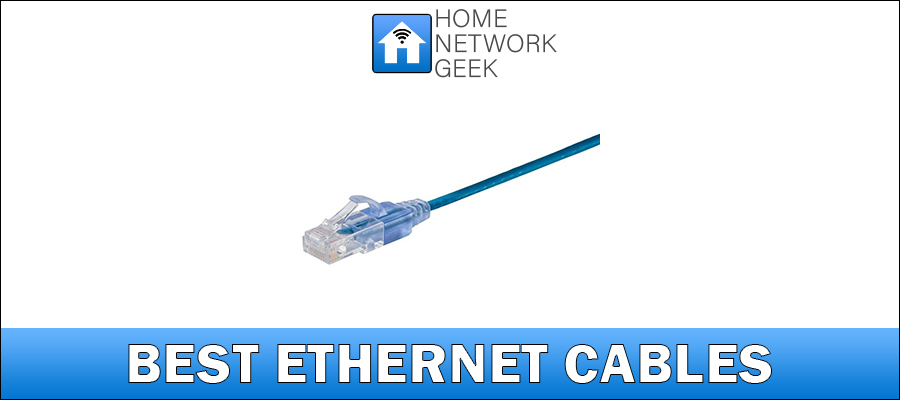Affiliate Disclosure: As an Amazon Associate I earn from qualifying purchases.

Connecting your devices to your network using Ethernet will always provide better performance than if you were to use Wi-Fi.
There are many different types of Ethernet cable that can provide different maximum speeds, so it is important to get some that fit the needs of your home network.
Having wired my own home up with Ethernet and researching the various different types and what they are capable of, I have concluded that these are my recommended Ethernet cables you should consider buying.
Top 3 Recommended Ethernet Cables
- Monoprice Cat6a Cable – This cable is half the thickness of a regular Cat6a cable and comes in a variety of lengths and colors
- Vandesail Cat7 Cable – This cable delivers the best performance with speeds up to 10 Gbps and supports a bandwidth of 1,000 Mhz. The flat design is also space-saving
- Fast Cat Cat5e Bulk Cable – Buying in bulk and making your own Ethernet cables could save you money in the long run and offers more flexibility around the length of cable you need
Why I Picked the Monoprice Cat6a Cable
There are a few reasons for me picking the Monoprice Cat6a Cable as the recommended Ethernet cable.
- Capable of 10 Gbps speed and has a bandwidth of 550 MHz
- Half the thickness of other Cat6a cables, allowing you to fit more into the same space and saving you time and money when adding additional cables or replacing fault ones
- Great flexibility in terms of length of the cable; they range from as short as 0.5ft to as long as 50ft
- Good choice of colors available as well as a multi-colored pack if you wish to color coordinate your cables with certain devices
- Comes in a pack of 5 or 10
What to Consider When Buying Ethernet Cables
- Ethernet cable category – Depending on their category, Ethernet cables will differ in speed, noise resistance, maximum cable length, and frequency. Cat5e should be good enough for most home networks as it is capable of providing Gigabit speeds
- Length of the cable – I would always recommend buying a cable that is longer than you need. The last thing you want is to get everything set up and buy your cable only to find it is too short by just a couple of inches. Measure twice, buy once
- Shielded vs Unshielded – Shielded cable is more difficult to work with and costs more. I don’t think they will offer much more benefit at all so my advice would be to save yourself some money and stick with an unshielded Ethernet cable